






MAILING ADDRESS
320 S. R.L. Thornton Freeway Suite 100
Dallas, TX 75203
WWW.TEXASMETRONEWS.COM 214-941-0110
Cheryl Smith
PUBLISHER - EDITOR editor@myimessenger.com www.myimessenger.com
S. Curet
GENERAL MANAGER stewartcuret@myimessenger.com
NEWSLETTER EDITOR
Marva Sneed
EDITORIAL TEAM
Chelle Wilson
Dorothy J. Gentry
Eva Coleman
Lajuana Barton
Rebecca Aguilar
Vincent Hall
Valerie Fields-Hill
Dr. Froswa Booker-Drew
Dr. Stacia Alexander
DESIGN/LAYOUT FzanStudio
WEB/SOCIAL MEDIA EDITOR
CIRCULATION/DISTRIBUTION
MB Distribution
Editorial submissions editor@texasmetronews.com




The Black Press believes that America can best lead the world away from racial and national antagonisms when it accords to every person, regardless of race, color or creed, full human and legal rights. Hating no person, fearing no person, the Black Press strives to help every person in the firm belief that all are hurt as long as

I have always found joy in being an optimist.. the one who can find the bright side or a way forward in nearly any situation.
Raised by a mother who always reminded me that when God closes a door, it means he has a window waiting for you to climb through with something better than you can even imagine in store.
My mother, like so many of her generation and those who came before, had the gift of foresight. See, they lived and worked in times of limited opportunities, but they did so while envisioning, believing in, and manifesting a brighter future for those yet to come.
Sadly, I think this has become a lost art.
As a mother, I am diligent about making sure my children take advantage of every opportunity to prepare for future success. I am excited about their goals and dreams and give them the same inspirational words of encouragement my mother gave to me.
news writing class every day, “when good people do nothing, the fools will rule.”
This morning, I want to salute Dr. Tiffany Willoughby-Herard, tenured professor at the University of California Irvine, who leaned into Black feminist activism and stood with her students to protest against genocidal policies.
As she was arrested and led away, she refused to be silenced. Dr. Willoughby-Herard stood 10 toes down calling out the foolish decisions made by those in positions of power.
She pointed out the hypocrisy in spending hundreds of thousands of dollars in police resources to forcibly remove student protestors when those same dollars could have been used for student scholarships so they could attend classes, purchase textbooks, and afford housing.

I even had to sit one of my children down the other day and recite Langston Hughes’ Mother to Son, reminding her too much has been sacrificed for her to give up “Cause you finds it’s kinder hard.”
As much as the poem was intended to help push her into her destiny, it also reminded me of mine.
I don’t know about you, but I feel as though I am living in an almost dystopian state, the kind Octavia Butler warned about many years ago. Every day we are seeing more and more people emboldened to spread hateful and violent racist, sexist, classist, and anti-immigrant propaganda. There is chaos in Congress, uneasiness around the upcoming election, the rolling back of civil and reproductive rights, environmental issues around pollution and climate change, genocide and famine in Gaza and Sudan, the coup in Haiti and the list goes on and on.
With all the crises, it’s easy to become so overwhelmed that you find yourself sitting in a perceived safety net of do-nothingness. That is, until you are jolted back into the reality of understanding what Willard Pitts used to remind his
When asked if she was afraid of losing her job, she responded by saying, “What job do I even have if the students don’t have a future?”
The passion in her voice and the deep concern for the students stirred something in me. Dr. Willoughby-Herard stood as one person but behind her lifting her up were the spirits of Clara Luper, Daisy Bates, Juanita Craft, Fannie Lou Hamer, and countless other women who stood alongside their students who sought to resist all forms of injustice and threats to civil and human rights.
Dr. Willoughby-Herard helped me again find a way forward even in these challenging times and I want her to know that even if no one else was moved by her courageous action, I was.
I encourage each of you reading, to please think on this, if our children are truly to have a better future, it is absolutely on us.
We must not only lean into our foremothers practice of envisioning, believing in, and manifesting a future beyond that which we can see, but we have to, as a collective, start assembling the stones and pouring the new foundation needed to create it.
In the words of Audre Lorde, “your silence will not protect you.”
The community, the nation, the world needs to hear your voices, now more than ever.
Be honest and ask yourself, “What job do I even have if the students don’t have a future?”
Chelle Wilson is a motivational speaker, entrepreneur, journalist and Herstorian. She is a member of Alpha Kappa Alpha Sorority, the NAACP, Links Inc, and Jack & Jill of America.
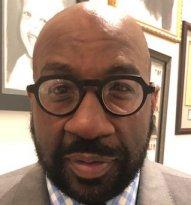
By now, you have been formally acquainted with what Black folks uniquely know as “The Talk.” The practice of readying young Black men for their first encounter with police was uncovered for America during the agonizing videotaped death of George Floyd.
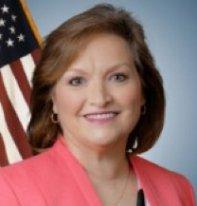
May is Mental Health Awareness Month. It’s an opportunity for us to reflect on the progress we’ve made in connecting more people to care and the challenges that still remain. We are in the midst of a mental health crisis. Unfortunately, the burden is not shared equally.

Philanthropist and changemaker Roland Parrish hosted the Inaugural Parrish Best Southwest Relays , an exciting event that drew thousands of fans and numerous track teams to DeSoto High School Eagle Stadium, 700 Eagle Drive in DeSoto, on Saturday.

I am traumatized. I am hurt.
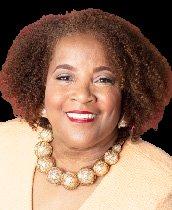
For so l long I have talked about the abuse that women are subjected to; especially Black women. I’m not the first to call it as it is and won’t be the last because it does not appear that change is on the horizon.
But I will keep hope alive and also keep working because I have faith. Which brings me to my truth.
As I viewed the recently released video of Cassie being kicked and stomped; each blow, was felt by me.
Not because anyone ever treated me that way, because no one has, but I felt her pain and the pain of so many others.
So many have been providing commentary on the brutal video of rap mogul Sean “P Diddy” Combs, stomping, kicking, and dragging his “girlfriend.”
Folks said that the lawsuit Cassie filed would provide triggering moments.
It absolutely did.
I recalled as a young child, watching a man beating my babysitter.
I was scared, but I also stayed in a child’s place and it wasn’t for me to do anything but get away so I wouldn’t get a taste of his rage.
To her credit, she got away from her abuser and never returned.
A few years later, I heard that the man was in prison. He beat a woman to death! I know my former babysitter said a prayer because she got away alive.
I remember going off to college and I had three roommates. I was the youngest, and I was pretty innocent. Well, one of the roommates always had her boyfriend over and they used to fight and fight and fight.
For me to accurately tell the story, I have to say that my roommate started many a
fight and she acted like she loved the negative attention she received from her man.
One evening, two of my roommates and I were sitting in the dining room, playing cards.
Of course at Florida A&M University they felt I needed to know how to play the popular card game, Bid Whist, so class was in session and we were enjoying the evening.
Next thing we knew we heard this loud pop like someone had been hit. Our other roommate came running out of the room, with boyfriend hot in pursuit. He threw her up against the wall. I was shocked. I didn’t know what to do.
I was the only teenager in the room and these grown women were doing nothing while he beat her.
They were used to their battles and said she was going to keep letting him back in so they stayed out of the fray.
Decades later, I hear they are still together, still fighting and I guess still loving one another.
Next, when I moved to Dallas in the 1980s, I was a mentor to Patrick, Sir Leland, Kamond, Chris, and Edmond at Lincoln Humanities and Communications Magnet High School.
I used to talk to these young brothers about respecting women, and not putting their hands on them. Instead, they should walk away before hitting a female.
These young brothers said “these girls are different. They are crazy. They will jack you up and try to fight you like a man. And if you act like you don’t want to talk to them, they try to call you gay.”
Still I continued to impress upon them the need to respect and love on Black women, and also to get away from situations that have the slightest potential of turning physical.
Sadly, Black women deal with so much hatred, disrespect, and so much pain that we turn around and inflict pain on one another.
And it’s not just physical pain that I am referring to.
When I tuned in to Tarrant County Commissioners Court and saw Commissioner Alisa Simmons being told by her equal on the commissioners court, County Judge Tim O’Hare to, ”sit there and be quiet,” I was enraged and glad to see that people spoke out in support of Commissioner Simmons.
Then to add insult to injury, U.S. Rep. Marjorie Taylor Greene (R-GA) is playing victim after personally attacking U.S. Rep. Jasmine Crockett (D-TX).
Rep. Greene gives new meaning to the word “gaslighting.” She tried to paint a picture of an out-of-control, over-emotional Rep. Crockett; which was definitely not the case.
In the meeting, when insulted by Greene, the freshman congresswoman asked, a hypothetical question of the chairman, “If someone on this committee then starts talking about somebody’s bleach blonde, bad-built butch body, that would not be engaging in personalities, correct?”
And while some are decrying the back and forth that ensued; social media has had a field day with memes and songs.
Please understand there’s a lot going on and there are too many who are silent.
Black women need more advocates. We come to the aid of everyone while they are silent as we suffer.
Women have the power, and influence. We have to be our own advocates.
The more we speak up, the less we will hear or see from the likes of O’Hare, Greene and Combs.

Most of us were appalled watching the recent footage involving the disrespect of Representative Jasmine Crockett. Jasmine was a representative in the Texas House, selected by former Congresswoman Eddie Bernice Johnson to serve as her replacement in the House of Representatives and a graduate of University of Houston’s School of Law. She was verbally attacked in a hearing not because of anything related to the work but because of her eyelashes.
Angel Reese, WNBA player, received criticism online because she chose to attend the Met Gala before a game against the New York Liberty. In a press conference in April, she stated, ““I’ve seen so much. I’ve been attacked so many times. Death threats. I’ve been sexualized. I’ve been threatened.”
The video surfacing of the brutal beating of Cassie Ventura was not only painful but angering to watch. Initially, Sean Combs denied that the accusations against him were lies to defame his character and legacy but were also a money grab. To relive this once again must be so difficult for Cassie but to know that this proof validated what she and others had been saying all along must create a mixed bag of emotions as well.
Just last year, we witnessed the verbal assault on Claudine Gay, former President of Harvard University. Al Sharpton stated, “President Gay’s resignation is about more than a person or a single incident. This is an attack on every Black woman in this country who’s put a crack in the glass ceiling … Most of all, this was the result of a relentless campaign against President Gay, not because of her leadership or credentials but because [it] felt she was a DEI hire.”
The attacks that we face are on so
many fronts: “Black women experience violence at a rate 2.5 times more than white women.” According to a 2020 report from Lean In, “Black women comprise 7.4% of the U.S. population but they occupy only 1.4% of C-suite positions and 1.6% of senior vice-president roles. U.S. Census data shows Black women working yearround and full-time in 2021 made 69 cents for every dollar a white man got. Meanwhile, white women made 80
may feel we don’t belong in. Haman was attempting to have all the Jews killed during her reign as Queen unaware of her background. “Urging her to have courage, [her cousin and guardian, Mordecai] told Esther, “For if you remain silent at this time, relief and deliverance for the Jews will arise from another place, but you and your father’s family will perish. And who knows but that you have come to your royal position for such a time as this?” (Esther 4:14).
Black women comprise 7.4% of the U.S. population but they occupy only 1.4% of C-suite positions and 1.6% of senior vice-president roles. U.S. Census data shows Black women working year-round and full-time in 2021 made 69 cents for every dollar a white man got. Meanwhile, white women made 80 cents on the dollar.
cents on the dollar.” According to Amnesty International, “Black women are 84% more likely to be abused on social media than white women.”
It’s overwhelming to both witness and experience trauma personally and professionally. Misogynoir is hatred of, aversion to, or prejudice against Black women. The term was coined by Northwestern’s School of Communication associate professor Moya Bailey to describe the sexism and racism that Black women encounter. Black women experience being othered in so many facets of life—at work, school, in community and in our relationships. I was sharing with a group recently that as Black women, we need safe spaces that celebrate us—we can no longer afford to tear one another down when that happens so readily in other spaces.
Esther is a reminder that there are spaces that we will occupy that others
God used Esther to save the Jews. She could have decided to hide and allow someone else to be responsible but instead, she used her position to make a difference. As we witness these attacks, now is not the time to back down. Now is the time to use your voice, your vote, your vision, to make things better. These are not setbacks, these are setups for God’s glory to shine through each of us. We are not here by accident. There is purpose even in our pain and now is the time for us to galvanize in partnership with God to do the greater that our families, workplaces, and communities need.
Dr. Froswa’ Booker-Drew is the Founder and CEO of Soulstice Consultancy, specializing as a Partnership Broker and Leadership Expert for companies and organizations to thrive with measurable and meaningful impact.
 BY VINCENT L. HALL
BY VINCENT L. HALL
By now, you have been formally acquainted with what Black folks uniquely know as “The Talk.” The practice of readying young Black men for their first encounter with police was uncovered for America during the agonizing videotaped death of George Floyd.
The Talk surfaced nationally after yet another “deadly oops!” A wayward cop became judge, juror, and executioner on the scene. And although America touts “how far” it has come since Jim Crow, lynchings, and the other atrocities trained on Black Americans, The Talk must be rehearsed with every generation.
My dad dangled the car keys in one hand, while warning me with the other. “Son, always watch your speed and stay within the speed limit. Make sure that all your lights are working and that you use your ‘blinkers’ when appropriate.
“And most of all, ‘Pooh’ (my nickname), don’t drive through Highland Park unless you got a lawnmower in the back seat. In that neighborhood, any Negro they see without tools visible is a suspect.
“Oh yeah, and don’t ever be caught with three or four Black men. That looks like a gang to some police, and they automatically get suspicious.”
Now, I realize that you may not have had that history with the police, but most Black men in my generation and beyond will attest that my daddy was
spot on. Black people who live near the “Park Cities” are still wary of being in the “wrong” Neighborhood. Most of the suburban agencies, North and South have similar legacies. (Don’t ask me unless you want the full list!)
That’s why I can hardly wait to vote to re-elect Sheriff Marian Brown next Tuesday. She has proven that law enforcement
served as a first-line supervisor in the Patrol Division. By 1997, Brown earned the rank of Lieutenant. She continued to work in community relations but eventually returned to the Patrol Division to serve as commander.
In 2005, she was assigned to command the Criminal Investigations Division. There, she served until 2007, when she was
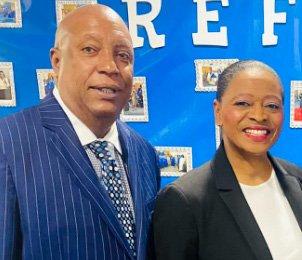
agencies can blend into communities with the right leadership and guidance.
Under her direction the Dallas County Sheriff’s Office is sensitive and responsive to the needs of Dallas’ diverse and dynamic demographic.
The former Assistant Chief on Duncanville was sworn in as Sheriff of Dallas County on January 1, 2018. Sheriff Brown is the first African American Sheriff in Dallas County and one of only three AfricanAmerican female sheriffs in the United States.
Sheriff Brown began her career in law enforcement in 1988 with the Duncanville Police Department. She was a trailblazer who became the first African American female hired by Duncanville.
She quickly ascended in rank, being promoted to sergeant in 1993. While in that rank, she
Sheriff Brown is the prototype and example of what we need to create a new generational paradigm for policing urban communities.
We need law enforcement officers that we can trust. DPD Chief Eddie Garcia is a great leader, but the City of Dallas has not always been able to say that. We have had some lousy police chiefs.
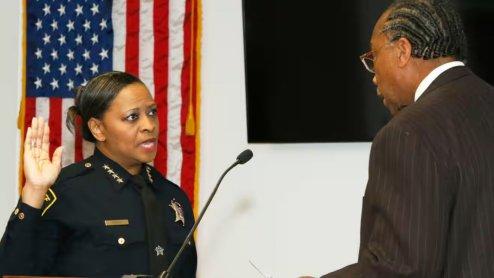
named to the position of Assistant Chief of Police. She served as Assistant Chief until 2014 when she retired and joined the Dallas County Sheriff’s Department as Chief Deputy in charge of General Services.
Since being elected Dallas Sheriff, she has managed every aspect of her charged duties. Our jail is larger in population than 90% of the towns in Texas and she runs and maintains the jail by enforcing all the sanitation, nutritional, and population standards set forth by the state of Texas.
Sheriff Brown is also responsible for the safety and well-being of law enforcement professionals, from jailers to street patrols and specialty units. She is the First Lady of a growing congregation and walks her Christian talk.
I can’t wait to vote for her.
But you, as a citizen, have an opportunity to elect your Sheriff. Don’t forfeit the chance to cast your Vote for Sheriff Marian Brown on Tuesday, May 28. Actually you can vote early - thru Friday, May 24.
Show up like they’re selling five-dollar margaritas at the polls. Hurry, like it’s your child’s last soccer game, and you missed all the others. Vote like you think Donald Trump could be re-elected if you don’t participate in the franchise. Vote like it’s Drake vs. Kendrick Lamar!
Go Vote, and vote for Sheriff Marian Brown. And, if you are in the area, watch yourself if you are anywhere near Highland Park!
DESOTO - It was a festive gathering at the DeSoto event center to celebrate “Lay Day,” in honor of the late Muhlaysia Booker, on Friday, May 17, 2024.The official day is May 18; the actual anniversary of the day she was murdered.
Family members, “chosen family members,” friends, and supporters all came together to dance, celebrate and share stories of good moments they had with Muhlaysia, a 22-yearold Black transgender woman, brutally beaten in 2019 in Dallas by a mob of guys. That assault was captured on video and circulated over social media and a month later she was found shot to death.
Last November, her killer was sentenced to nearly 50 years in prison for the crime.
“It don’t seem like five years that ‘Lay’ has been gone,” said Stephanie Houston, Muhlaysia’s mother, “Somebody that got a big spirit and a personality like that, it’s just like she’s still here.”
The celebration also included praise dancing, featuring Ma-kirah Wilkerson, and a presentation from the Muhlaysia Booker Foundation.
Houston started the Foundation in 2019 to provide resources to transgender women and their families. Last year, Foundation representatives traveled to Washington, DC to meet with leaders at the White House, Congress, Department of Justice, and other agencies and groups to bring awareness to the Foundation and Muhlaysia’s story.
According to the Trans Murder


Monitoring research project, hundreds of transgenders and gender reversed are murdered annually, although experts believe the numbers are considerably higher except that many attacks are underreported.
Equally disturbing, the report noted that most victims were Black and trans women of color; and Texas led the nation in murders of transgender people.
It has been a long, emotional five years since Muhlaysia’s murder in Far East Dallas.
This year those who knew her spent more time talking about her beautiful personality and spirit.
Houston encouraged attendees to share their Muhlaysia stories.
“I want these to be happy stories and good times you had with my baby,” she said.
Of those who shared were members of Muhlaysia’s “chosen family.”
She not only had her mother and sisters, but she also had TJ and Jordan, who were Muhlaysia’s chosen parents.
“We had so many good times,” said TJ, Muhlaysia’s chosen dad. “He was my child and I miss her.”
Chosen families are a big part of the Black LGBTQ community who can provide a sense of friendship and mentorship or fill a gap when there may be rejection from their biological family members.


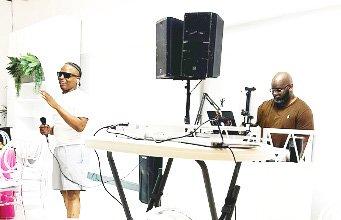
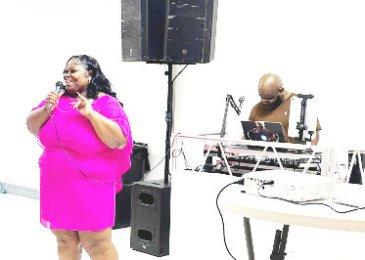

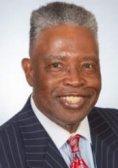
Mother’s Day is a special day for special people. We love and honor our mothers with a day devoted especially to them. Happy Mother’s Day was celebrated on Sunday, May 12, 2024.
Many of us have celebrated a lot of these days with our moms. We take them out to eat, give them flowers and treat them like royalty.
A mother’s love is unconditional. Simply put, they’ll always love us. While we will have faults along the way, our mothers will be supportive and will be our refuge in times of challenge.
We all have stories about our moms. I have one and so do you. They are filled with laughter, tears, happiness and sadness.
The strength of a mom is undeniable. When we are down and need encouragement, they give us counseling and self-confidence.
My mom passed away many years ago. She left an indelible mark upon my mind and soul.
It is not a day that goes by that I don’t think about her. I wonder what she would do in certain situations and of course I wonder what she would think of me now.
My mother was a registered nurse (RN) in Winston-Salem North Carolina at Kate Bitting Reynolds Hospital. She possessed a kind and gentle spirit which I suspect led her into the
healthcare field. While that was her profession, that was only a small part of who she was.
Everyone in our neighborhood knew who Mrs. Mildred Ewers was. There were always people in our house either eating or talking and sometimes both.
My dad respected and loved her because of her persona and the way she made others feel around her. There were other attributes that made her stand out. As I reflect now, our family was proud of her and her accomplishments.
My mom was a BBC (Black Betty Crocker). She was a master in the kitchen preparing meals that were delicious.
Real macaroni and cheese, real biscuits and real pinto beans were dishes that we ate daily. I will say we had leftovers on Monday. She would make some gravy and put on the fried chicken we had on Sunday.
We didn’t go to fast food places. First, there weren’t many of them and lastly, my mom’s food was the best.
She taught me the importance of keeping clean and dressing appropriately as I wore shirts and ties at a very young age. The habit of dressing well has stayed with me throughout my life, and it is because of her.
She always wanted me to look a certain way so that people would know that I came from a home with standards. One of those standards both of my parents instilled in me was how to treat people. They knew that how you treated people would gain you respect. They were right.
I have known for many years that
treating people with dignity and respect are fundamental principles in life. People don’t want to know how much you know until they know how much you care.
Education was valued in my home. My mom stressed the importance of having a good education. She believed that having one would lead to having a successful life.
She would tell me on countless occasions you must combine having a good work ethic with having a good education. Having the drive and the determination would shape my ability to get a good job. She was right. My mom was the greatest. Without her, I would have been a frame without a foundation. I realize as I am in the 4th quarter of my life how truly blessed I was to have her as a mom.
If your mom is living, don’t take her for granted. Don’t say you’ll do it tomorrow because you don’t have time today. Time has a way of slipping up on us because tomorrow is not guaranteed.
This column is dedicated to my mom, Mrs. Mildred Ewers and to my aunt, Mrs. Lois Thacker who gave me the tools for successful living.
Dr. James B. Ewers, Jr. is a long-time educator who hails from Winston Salem, N.C. One of the top tennis players in the state, he was inducted into the Black Tennis Hall of Fame in January 2021. A graduate of Johnson C. Smith University, he received his M. A. degree in Education from Catholic University in Washington, DC, and Ed. D. degree in Education from the University of Massachusetts in Amherst, MA. He has also done postdoctoral studies at Harvard University and Ewers is a life member of the NAACP and a member of Alpha Phi Alpha Fraternity.


May is Mental Health Awareness Month. It’s an opportunity for us to reflect on the progress we’ve made in connecting more people to care and the challenges that still remain.
We are in the midst of a mental health crisis. Unfortunately, the burden is not shared equally. Black and Latino communities do not have the same access to quality, equitable, and culturally sensitive mental health services and supports as compared to other communities. The rates of suicide in both Black and Latino communities are high. Improving mental health outcomes in these communities is a deeply nuanced issue that requires urgent attention. For example, in my work as Acting Regional Director for Region 6, I’ve talked to countless people in our Black communities who have experienced anxiety, grief, and even depression during the COVID-19 pandemic because of isolation and loneliness. Unfortunately, stories like this are not uncommon.
Every year, around 50,000 Americans die by suicide. That’s one death every 11 minutes. And, we’re seeing an alarming rise in suicide rates among Black youth – between 2018 and 2021, suicide rates in this group increased by 36%, the most rapid increase of all racial and ethnic groups. Also troubling, only one in three Black adults who need mental health care receive it.
Closing equity gaps in mental health outcomes means addressing the driving forces of the disparities in our health care system – including enduring legacies of slavery and segregation, and mistrust of the medical system resulting from historical abuse and ongoing disproportionate outcomes. We
The mental health challenges we’re facing are everywhere. But so are the solutions that HHS is making accessible. We have so much more to do, but there is hope. We are finally on the right path, addressing the root causes of the mental health crisis and the disparities in mental health outcomes for Black Americans.
have a lot of work ahead of us.
The U.S. Department of Health and Human Services administration is working hard to make sure that everyone who asks for or needs help can access it. We’re also taking action to do away with the stigma of asking for help so that those who need it feel embraced, rather than ostracized. Just last month, the Administration released the 2024 National Strategy for Suicide Prevention and the accompanying first-ever Federal Action Plan. The strategy addresses the realities of today’s world. The Action Plan outlines more than 200 actions federal partners have committed to, including increased support for those affected by suicide and identifying promising community-based suicide prevention strategies. We know that some communities are more at risk than others, and our National Strategy takes that into account.
All of this builds on the transformational work that we have driven to improve suicide prevention and crisis care and response efforts around suicide. That includes the launch of the 988 Suicide & Crisis Lifeline – one of the most effective programs to help people who feel alone and out of options. The service is available 24/7, free, and can be accessed through phone, text, and chat.
We can’t wait until people feel as if they have run out of options. HHS created a Black Youth Suicide Prevention
Initiative to support the nation’s infrastructure to provide targeted suicide prevention programming for Black youth and young adults.
Last year, HHS announced awards of nearly $130 million to expand Certified Community Behavioral Health Clinics (CCBHCs) across the Country. As the HHS Acting Regional Director for Region 6, I’ve seen the commitment of various organizations, including the S.P.I.C.E Foundation and Helping Hands Community Support Services, to address the mental health needs of all Texans.
And, HHS is meeting children where they are with resources – at school. We’ve invested over $100 million in expanding and improving school-based health services in counties across the country, through Medicaid and CHIP.
The mental health challenges we’re facing are everywhere. But so are the solutions that HHS is making accessible. We have so much more to do, but there is hope. We are finally on the right path, addressing the root causes of the mental health crisis and the disparities in mental health outcomes for Black Americans.
Julia Lothrop is the U.S. Department of Health and Human Services Acting Regional Director for Arkansas, Louisiana, New Mexico, Oklahoma, Texas, and 68 Federally Qualified Tribes. She has worked with the regional office for over 20 years.































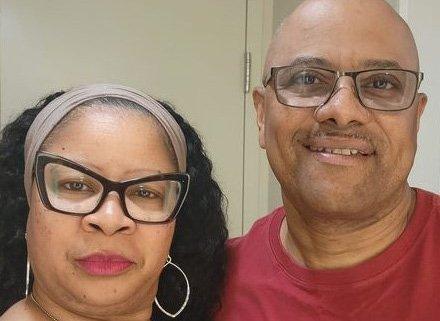
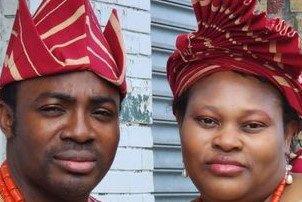
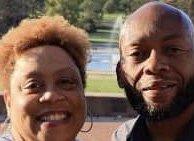




When Dr. Frederick D. Haynes III, of Friendship-West Baptist Church, announced 100 Days of Buying Black in acknowledging the 100th Commemoration of the Tulsa Race Massacre, we joined the movement. December 31, 2021 marked 100 days of featuring Black Businesses. and we decided that the struggle continues and we must also. So enjoy reading about more Black-owned businesses and please support.
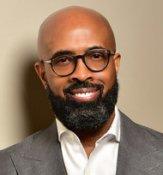
Dr. Frederick D.Haynes III
perfect for the everyday girl, jetsetter, mom, or mogul. By their popular demand, the line has extended into cosmetic bags, wallets, travel accessories, and journals. Shop the website for their luxury items and get 15% off your first order.
https://glamaholiclifestyle.com/ email: Help@ glamaholiclifestyle.com.

Dr. Tiffany Woodus, a women’s health advocate, established Woodus Obstetrics & Gynecology to further her commitment to providing ALL women with the rights, respect, and resources necessary to thrive in every aspect of their healthcare. Thus she started Woodus Obstetrics & Gynecology. The maternal health and well-being of all mothers, particularly black and brown mothers, is under attack. Read more about Dr. Woodus on the website. Woodus Obstetrics & Gynecology, 1121 N. Joe Wilson Rd. Cedar Hill, 469-206-9080 front desk. https:// woodusobgyn.com/
Glam-Aholic Lifestyle has customers from coast to coast, Glam-Aholic Lifestyle, is a luxury line signature Glam Tote and exclusive Travel, like a G Travel Set. It is


If you are dreamers, visionaries, and ambitious individuals who aspire to a lifestyle of luxury, authenticity, and success Milano Di Rouge created with you in mind. Their creations are not ordinary garments; they are keys to a realm where dreams take form and ambitions worn on one’s sleeve. We offer more than just style; our brand narrative is into every aspect, inviting our audience to join a movement of boldness and authenticity. Join them, and embody the luxury of achieving your dreams.
https://milanodirouge.com/ email: info@ milanodirouge.com.
Buzzoms empowers women to ditch the bra with theircomfortable, supportive clothing designed for all body types. Their uniquesizing system ensures a perfect fit, while their mission is to create abra-free revolution for confident women. Theirpatent-pending boob pocket is a comfortable inner lining with a thick elasticband to support your boobs without a bra. It’s made of breathable, power meshand elastane for comfort. Visit their website sign up for their waitlist and get 10% off.

https://buzzoms.com/ help@buzzoms.com Instagram DM @buzzoms Phone: 646-481-6455.
Unique Image Beauty Supply is a Black-owned family business in South Arlington/Mansfield. In 2019, they stepped into the world of entrepreneurship with a dream of creating a beauty supply shopping experience
that wasn't available to customers before personalized customer service and comparable pricing to other supply stores! After research, they found that there was demand from both women and men customers alike, so they decided it made sense to include more products catering towards male grooming as well at this one-stop shop. Shopping is available online or you can stop by their Arlington shop.https://www.uniqueimagebeautysupply. com/ 8010 Matlock Rd. Suite 700, Arlington, (682) 2708490 email: kevin@uniqueimagebeautysupply.com.

BILLIE JOE COFFEE CO.

At Billie’s they are very passionate about making good coffee, they source only the highest quality green coffee and work with those who seek to do the same. They roast a small, intentional selection of coffees with care to bring forth the unique qualities of each one, highlighting what makes them special. Shop online or stop by with a friend and enjoy a cup.
https://billiejoecoffeeco.com/ 1015 Ikea Pl. Suite 200, Grand Prairie.
& CREOLE FOOD CUISINE

There's nothing better than sitting down with a fresh plate of authentic Cajun & Creole-inspired food. Every item on their food truck menu includes a wide range of flavors & dishes to satisfy every taste of Cajun-Creole food with a kick of soul. Transform your party into a can't-miss event. With a festive, on-trend food truck bringing the best bites to your front door, partygoers will come for the food and stay for the company.
https://nappyscuisine.com/ 1530 E Debbie Lane, Mansfield



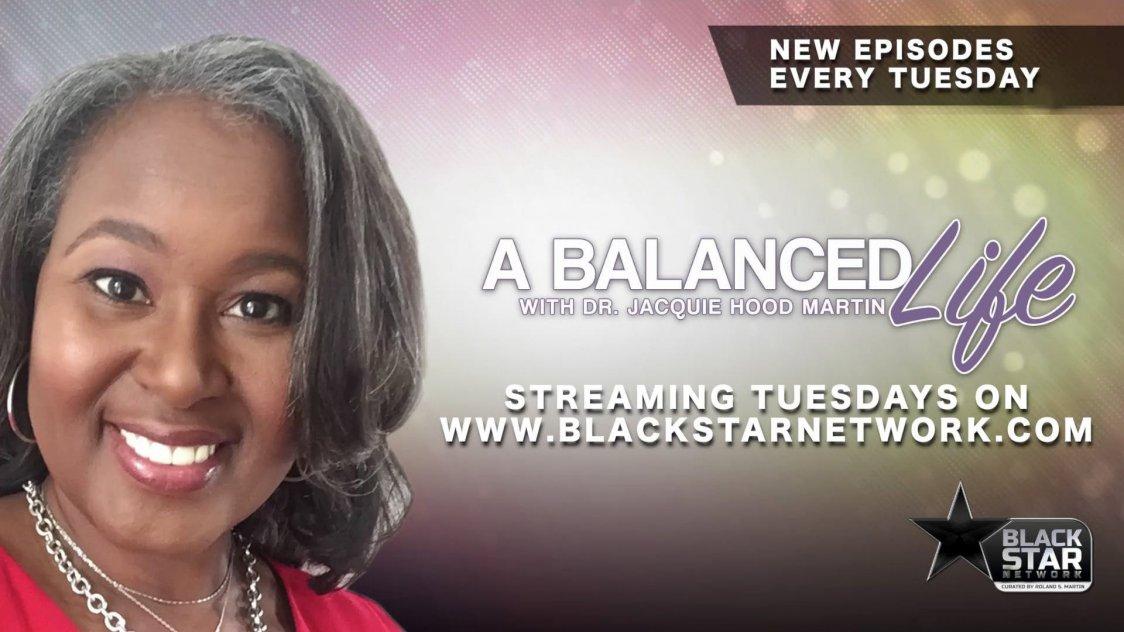



There is often public criticism of Black elected officials that generally reflects a sentiment that they lack courage. As an advocate for my people, I have engaged in some of the most scathing critiques of Black elected officials, and this has been extremely important in the effectiveness of the work of my organization, Leaders of a Beautiful Struggle (LBS).
In Baltimore, we do not have community controlled, independent Black electoral infrastructure that can produce candidates for public office. This means that Black people who are looking to run for office have to rely on institutions outside of our community in order to be viable candidates for public office. The truth is, by the time we arrive at the ballot box, the choice regarding who represents us has largely been made for us. We are largely picking between candidates for public office that have been vetted by the corporate sector and the political establishment. In the grand scheme of things, many of the Black people who are in elected office do not work for us, they are henchmen of interest outside of our community. I don’t expect Black elected officials to do anything unless we organize ourselves effectively to make them do it. We have to make it hurt for them to go against the interests of our community. The development of this electoral infrastructure is a long term endeavor that
LBS hopes to build on behalf of Black people in Baltimore.
There are a handful of Black elected officials that have used their time in office to challenge powerful interests on behalf of our community. And while it is important to criticize Black elected officials when they are engaged in activity that is harmful to our community, we have to acknowledge when they do things that challenge powerful institutions on our behalf. More importantly, we should acknowledge the mechanisms that are used to punish those who do take these kinds of positions. The federal prosecution and conviction of Marilyn Mosby is an act of the law enforcement establishment punishing her for taking stances against their racist policy positions on criminal justice issues.
Outside of being the Black woman that prosecuted the officers that killed Freddie Gray in 2015, Mosby was a target of conservative prosecutors and the Fraternal Order of Police. I know first hand that her stances on issues that I have worked on contributed to her being a target of the law enforcement establishment. Her support of police accountability legislation, expungement of criminal convictions that stemmed the testimony of corrupt police officers, decriminalization of cannabis and support of community based approaches to violence prevention as an alternative to police centric approaches to public safety are issues that we have worked on
together. These policies were efforts to fight back against the system of White supremacy that weaponizes the criminal justice system to undermine the humanity of Black people. Prosecuting her for taking money out of her own account, amongst other charges that have no potential to harm anyone, is a political punishment for taking positions that challenge the racist policies of the law enforcement establishment.
In Maryland there has been an aggressive push against policies that seek to reduce the harm that the criminal justice system has done to Black people. People like Baltimore County State’s Attorney Scott Shellenberger, Baltimore City State’s Attorney Ivan Bates and Howard County State’s Attorney and current chair of the Maryland State’s Attorney Association, Rich Gibson, have been leaders in the attempt to roll back the progress that has been made on criminal justice reform. Just to put in perspective the nature of the policy proposals that these folks are advancing, they support the repeal of the Child Interrogation Protection Act (CIPA).
This law, passed in 2022, essentially requires that children have access to legal counsel and that a parent is notified when police conduct a custodial interrogation of that child. This is to protect youth from being coerced into making false incriminating statements against themselves. This should be a policy that is a no brainer es-
pecially given the high profile stories we have about children that have spent significant time in prison as a result of this issue (i.e. the Exonerated 5 in New York). The three Maryland DA’s that I mentioned earlier are all on the record in support of repealing this law. Marilyn Mosby’s time as Baltimore State’s Attorney provided a crucial counter to the policy agenda being advanced by the law enforcement establishment in Maryland.
Regardless of whether you voted for Marilyn Mosby, or have legitimate criticisms of her tenure in office, one thing that we should all agree with is that the use of federal prosecution and prison time for political purposes is dangerous to those who aspire to engage the political arena on behalf of Black people. This sends a signal to Black elected officials that if they challenge powerful interests that they should expect to go to jail.
There are allies of Marilyn Mosby that are urging president Joe Biden to pardon her conviction so that she doesn’t serve any time in jail. I support this call for her conviction to be pardoned.
The fact that this level of advocacy is needed to get the Democratic party to address this political attack against someone who stood up to the law enforcement establishment should be a lesson on how much that needs to be done to change the exploitative relationship that Black people have to the Democratic party.





Fort Worth – Witherite Law Group and 1-800-TruckWreck are committed to giving back to the community of Fort Worth and presented their 2024 “Making a Difference” Scholarship recipients with $2,500 scholarships.
This year, 60 graduating seniors, up from 44 in 2023, will each be awarded a $2,500 scholarship, totalling $150,000 in scholarship funds awarded by Witherite Law Group. Additionally, if students maintain a 2.0 GPA and take at least 12 credit hours, their “Making a Difference” scholarships are renewable annually.
Created in 2016 by Amy Witherite, founder of Witherite Law Group and 1-800-TruckWreck, the “Making a Difference” Scholarship provides financial assistance to students who have demonstrated leadership in their schools and communities. The partnership with Dunbar High School began in 2014 and Witherite Law Group and 1-800-TruckWreck
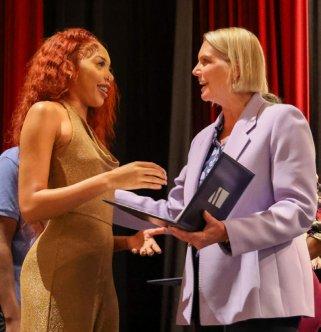
have awarded 109 scholarships and renewed 254 scholarships total — an investment of approximately $850,000 across all schools supported by the firm.
“The rising cost of higher education is forcing some students to go straight to work and delay or forgo college altogether,” said Witherite. “We have steadily increased our scholarship awards due to local need and economic pressures. Having financial resources to help with school gives students an opportunity to focus on academics, bettering their chance of completion and securing a fulfilling career.”
“Making a Difference” Scholarship recipients
Marcelino Arias
Grecia Arzaga
Ernest Bakina
Destiny Banks
Nepheteria Bowden
Dezsmond Brown-Crossley
Samiya Burkley
Keyshawn Cahill
Destiny Carrasco
Zacoreyun Coleman
Alondra De Leon
Jordynn Douglas-Castillo
Jurel Evans
Daiyauna Faison
Brandon Gaines
Erick Garcia
Vision Graham
Destynee Gray
Dallas Henry
Brooke Howard
Jordan Howard
I’aliyah Jamerson
Ta’mya Johnson
Aeryonna Jones
Mya Kindles
Kimrie King
Enrique Lona
Melissa Madrigal Corona
Abraham Mani
Jordan McIntosh
Tiyanna Mckinney
Isaac Mendoza
Valerie Mier
Pareece Morehouse
Gladys Mosqueda
Cristian Navarrete
Brianna Nixon
Tania Ocegueda
Cristopher Page
Keyana Roberson
Jaz’lyn Robinson
Aziria Rodgers
Mariela Rodriguez
Joshua Rojas
Orlando Roman
Bryan Sanchez
Jerry Sharp
Devin Sims
Taonga Tembo
Carrington Terry
Cyniah Thompson
Zamya Tidwell
Mariela Torres
Jaydn Walker
Tyline White
Arieonna White
Bryton Woodard
Kaedence Woodard
Tyshawn Wright
Hodan Yakub
Dallas ISD and the Center for BrainHealth® have selected Sam Tasby Middle School as winner of the Great Brain Gain Middle School Contest. As the winning campus, Tasby will receive a $10,000 prize and access to cognitive training for students, staff, and parents.
The Great Brain Gain Middle School Contest is a partnership between Dallas ISD and UT Dallas’ Center for BrainHealth, aimed to promote brain health and development throughout middle school communities. It was made possible thanks to a generous gift from BrainHealth supporters Sandy and Tommy Rouse.
Schools were invited to submit a 3-5 minute video or a one-page document outlining their plan to promote brain health among students, faculty, staff, administration, and parents/families. A panel of judges comprised of Center for BrainHealth leaders and Dallas ISD administrators selected Sam Tasby Middle School from ten campuses that submitted entries.
Dallas ISD Superintendent Stephanie S. Elizalde, Ed.D., lauded the initiative. “I’m thrilled to introduce a groundbreaking initiative that places a spotlight on the epicenter of human potential, the adolescent brain,” she said. “Tasby’s submission demonstrated innovation and campus buy-in, showcasing a strong commitment to promoting brain health through-
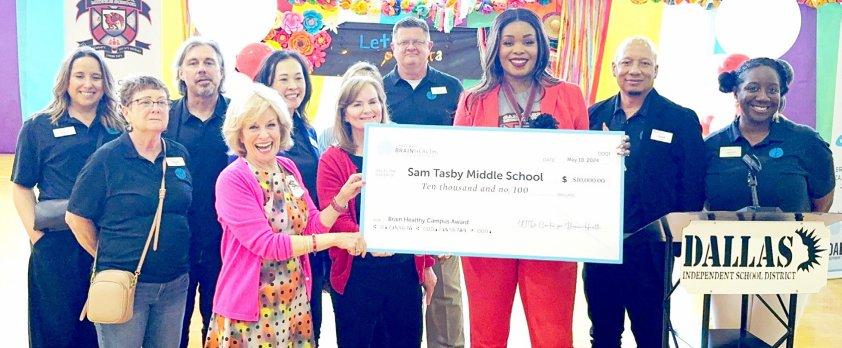
out their school community.”
Students and teachers learned about the award during a gleeful school-wide assembly on May 10. Tasby Principal Nesha Maston made the announcement alongside Sandra
BrainHealth supporters.
“Being brain healthy is about things like how you learn new information, how you solve problems, how you meet challenges, how you can be creative and innovative, and how you
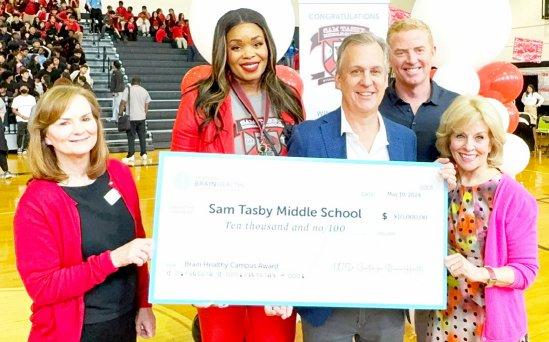
Bond Chapman, PhD, Chief Director at Center for BrainHealth; Jacquelyn Gamino, PhD, Director of the Center’s Adolescent Reasoning Initiative; and Jason Garrett, NBC broadcaster and former quarterback and coach for The Dallas Cowboys, along with his wife Brill, both avid
connect with other people,” said Dr. Chapman. “You won because of your enthusiasm and your wonderful community spirit. You are thinking about brain health for all the students… as well as for the teachers and staff, and even including your families! Isn’t it
amazing how we can all BUILD our own BRAIN?”
Dr. Gamino added, “Adolescence is a time of the most profound brain development, second only to the first months of life. We have been partnering with schools for more than 15 years to provide tools that have been scientifically shown to enrich and strengthen the learning potential of students. Every student deserves the opportunity to receive cognitive empowerment through neuroscience-based solutions.”
Since its inception, the Adolescent Reasoning Initiative has trained more than 600 teachers and reached about 90,000 students. The program has demonstrated measurable improvements in high-level executive function and well-being, as well as various metrics of academic success and strong STAAR test performance. Thanks to grants and donors, the invaluable Adolescent Reasoning Initiative program is made available to schools at no charge.
CNN — For nearly a decade, I have been honored to be a faculty member at the University of Texas at Austin. As a scholar whose research and teaching hinge on histories of racism and activism, this April was an exceptionally harsh one for me — and for all of Longhorn Nation. A month that began with the gutting of resources devoted to our students has ended with shocking scenes of crackdowns by law enforcement in our midst. I have been left heartbroken. This spring, our motto, “What Starts Here Changes the World,” has taken on a bitterly ironic meaning.
On April 2, the university’s president, Jay Hartzell, delivered a devastating blow via email, announcing the firings and demotions of nearly 60 individuals, all victims of the university’s newly enforced compliance in the wake of Senate Bill 17, which prohibited DEI (Diversity, Equity and Inclusion) initiatives in all parts of campus except research and teaching.
Hartzell, in a letter, said, “associate deans who were formally focused on DEI will return to their full-time teaching positions,” while the “positions that provided support for those associate and assistant deans and a small number of staff roles across campus that were formerly focused on DEI will no longer be funded.” These people are not just numbers. They were members of our community. The shortsightedness of this decision led over 500 professors, including me, to sign a letter of no confidence with respect to the president.
What made the firings especially hurtful is this univer-
sity’s long history of racial exclusion, sexism, homophobia, transphobia and discrimination against students of color. The “40 Acres,” which constitutes the original size of land set aside for the university, is also shorthand for the pride that Longhorn Nation takes in the campus as both a real and imagined community. A significant part of that community’s history includes racial discrimination that required the courageous activism and organizing of students and community members to break down ancient barriers. The social integration of Black people and people of color at the university has been paralleled by the growth of Black, Women and Gender and Mexican-American Studies as globally recognized academic disciplines and departments.
To see these programs arise and grow, and to know that this flagship university has acknowledged marginalized communities only to then shut down programs that offer them a critical lifeline during their time here is profoundly disturbing to witness. Countless numbers of students have expressed to me their fear, anxiety, disappointment and depression. My colleagues and I have commiserated about the devolution of racial justice in Texas and nationally over the past four years. And an even larger number of “allies” have disappeared from view, which, although expected in many ways, is disappointing.
What makes the present so dispiriting is the reckless manner in which the goodwill of the recent past has been squandered.
George Floyd’s murder on May 25, 2020, sparked a na-
tionwide movement that forced institutional reckoning with America’s long history of racial subjugation.
I watched this history unfold while simultaneously participating in it, writing for CNN, conducting numerous interviews and delivering keynote speeches that doubled as sermons, evangelizing my hopes for building a Beloved Community out of the ashes of our centuries-long agony of racial discontent, political division and police violence.
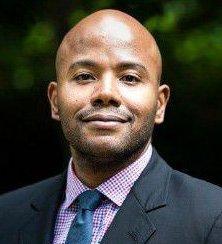
For a time, it appeared that things were, in fact, changing, with corporate America embracing the Black Lives Matter movement and the cause of racial justice in ways that enhanced opportunities, recognition and dignity for employees of color.
Meanwhile, universities expanded their DEI programs to create a welcoming environment for historically marginalized and underrepresented students but also to correct moral failings that included histories of racial segregation.
On this score, the University of Texas at Austin — still affectionately referred to as the “40 Acres” — has considerable work to do. Founded in 1883 as a racially segregated university of “the first class,” the univer-
sity did not open its doors to a single Black student until 1950, when Heman Sweatt (the Sweatt Center for Black Males was forced to drop any mention of race as part of the SB 17 compliance) began but did not finish law school.
When racial integration arrived in the 1950s on the heels of the Brown v. Board of Education Supreme Court decision, the earliest Black Longhorns — known as the “precursors” — found an inhospitable racial climate where they were not allowed to live on campus dorms joining fraternities and sororities and faced general disrespect.
Flash forward to 2024. At the very moment the university announced the creation of a new School of Civic Education to bolster viewpoint diversity that favors conservatives, it fired dozens of staff connected to DEI, the favorite target of the far-right.
As a vocal scholar-activist whose work continues to revolve around histories of race, democracy, and power in the United States and globally, I have watched, with growing alarm and sadness, the impact anti-DEI legislation has had on my students, colleagues and staff. The waves of political backlash unfolding around the nation also extend beyond DEI and indeed, beyond the walls of the university to include protests against the horrors in Gaza. This moment has turned universities such as Columbia in New York and Emory in Atlanta — among many others — into roiling battlegrounds that echo the clashes between anti-war and Black Power advocates and law enforcement on college campuses in the 1960s and 1970s.
Protest movements can look very different depending on where you stand, both literally and figuratively.
For protesters, demonstrations are usually the result of meticulous planning by advocacy groups and leaders aimed at getting a message out to a wider world or to specific institutional targets. To outside onlookers, however, protests can seem disorganized and disruptive, and it can be difficult to see the depth of the effort or their aims.
Take the pro-Palestinian protests that have sprung up at campuses across the United States in recent weeks. To the students taking part they are, in the words of one protester, “uplifting the voices of Gazans, of Palestinians facing genocide.” But to many people outside the universities, the focus has been on confrontations and arrests.
Where does this disconnect come from? Most people don’t participate in on-the-streets protests or experience any of the disruption that they cause. Rather they rely on the media to give a full picture of the protests.
For over a decade, my research has extensively explored trends in how the media shapes narratives around different kinds of demonstrations. Reporting on the campus encampments by large parts of the media fits a general pattern of protest coverage that focuses more on the drama of the disruption rather than the underlying reasons behind it — and that can leave audiences uninformed about the nuances of the protests and the movements behind them.
Protests — from small silent sit-ins and mass marches to the current student-led encampments — share similar components.
They require a degree of planning,
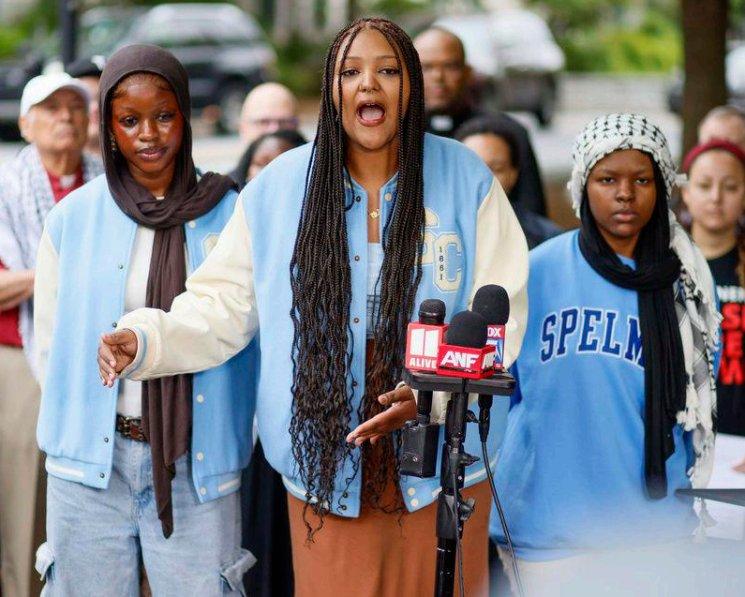
focus on a perceived injustice and seek reforms or solutions. Protests also, by their very nature, engage in varying degrees of disruptive actions that exist in confrontation with something or someone, and utilize strategies that attract the attention of news media and others.
These core elements — grievances, demands, disruption, confrontation and spectacle — are present in nearly all protests.
But to the media, some elements are more newsworthy than others, with confrontation and spectacle often topping the list. As a result, these elements tend to be covered more often than others.
In research focusing on social movements like Black Lives Matter, the 2017 Women’s March and others, I have found that time and again, coverage tends to headline the parts of the pro-
test that are sensational and disruptive. And this neglects the political substance of the protests. The grievances, demands and agendas are often left in the shadows. For example, analysis of the 2020 protests following the murder of George Floyd conducted by myself and colleague Rachel Mourão found The Associated Press and cable news headlines were more likely to focus on disruption and chaos than police violence or protester demands. This pattern is referred to as the protest paradigm. While there are many factors that can make this paradigm fluctuate, like the timing of stories and the location of a news organization, movements that seek to disrupt the status quo are the most likely to receive initial coverage that frames protesters as criminal, irrelevant, trivial or illegitimate components of the political system.
This pattern can be seen in the initial coverage of protests against the war in Gaza at U.S.-based universities. These protests began in 2023 and only escalated into the campus encampments seen today after months of campaigning.
In the months leading up to the encampments, many students who were engaged in advocacy efforts over the Israeli campaign in Gaza demanded, among other things, that their universities divest from businesses connected to the Israeli occupation of Palestinian territories.
Students at Brown University participated in a hunger strike in February. Also in February, a coalition of students across several historically Black colleges crafted a joint call to action across university systems. Students at my university — Michigan State — rallied support through an online petition and then lobbied at board of trustee meetings. When the board of trustees issued a statement refusing divestment of any kind, students continued to march to the steps of the main administration building where they continued to protest, all before planning the encampment protests.
Little of this made it into mainstream news reports compared to late April, when an uptick in coverage corresponded with students organizing encampments at universities and university official began to respond. Those universities that asked police to enforce the dispersion of protesters amplified the intensity of confrontation, and, in turn, amplified the news coverage.
And rather than focusing on the grievance of protesters — that is, concerns about the deaths, injuries and looming famine affecting Palestinians — in reports of the campus encampments it has been the confrontations between protesters and police that have become central to the news media coverage.
As with all trends, there are always deviations and outliers. Not all reported pieces align with the protest paradigm. In the research examining news coverage after the murder of George
In research focusing on social movements like Black Lives Matter, the 2017 Women’s March and others, I have found that time and again, coverage tends to headline the parts of the protest that are sensational and disruptive.
Floyd, we found that when reports in major news outlets deviate from the protest paradigm, it was often in work produced by journalists who have engaged deeply and frequently with a community.
In the current campus protests, it is student journalism that has emerged as an outlier in this respect. Take, for example, an article from the Indiana Daily Student published during the peak of the unrest, which explains the lesser-known last-minute administrative policy changes that ultimately disrupted protest planning logic and contributed to the arrests and temporary bans of faculty and student protesters.
There are commercial reasons why some newsrooms focus on the spectacle and confrontation — the old journalism adage of “if it bleeds, it leads” still prevails in many newsroom decisions. For the initial weeks of the campus protests, this penchant for sensationalism has shown up in the focus on chaos, clashes and arrests.
But it is a decision that delegitimizes protest aims.
This delegitimization is aided by the sourcing routines journalists often fall back on to tell stories quickly and without legal consequence. In breaking news situations, journalists tend
to gravitate toward — and directly quote — sources that hold status, like government and university officials. This is because reporters may already have an established relationship with such officials, who often have dedicated media relations teams. And in the case of campus protests, in particular, reporters have faced difficulty connecting with protest participants directly.
As a result, official narratives may dominate news coverage. So when officials like Texas Gov. Greg Abbott equate protesters to criminals with antisemitic intentions, that typically gets covered — certainly more than any rebuttal from protest participants.
And because readers and viewers are unlikely to be on the ground to gauge Abbott’s characterizations of protesters for themselves, the coverage can shape how a protest movement and the politics around it are understood.
The media shapes the way most people understand them. But as coverage of the protests across universities has shown, often the focus is on the spectacle rather than the substance.
As the November general election nears, many economic analysts have publicly pondered why so many likely voters are not impressed with reports that point to more hiring, or economic growth. But if these experts spoke with hard-working Americans, they’d understand why so many are disgruntled.
A wealth of new research spells out stark wealth and income disparities that reflect a far different economic dynamic: people who work full-time but find it difficult to get ahead financially. Race and ethnicity remain nagging factors. But emerging gender and occupational trends play a large role as well.
A late March update of the St. Louis Federal Reserve Bank’s ongoing research on wealth inequalities offers several eye-opening data points: Overall, women had only 68 cents in wealth for every dollar held by their male peers.
When data was filtered by race/ethnicity, never-married Black women and never-married Hispanic women had 8 cents and 14 cents, respectively, of the wealth of white males.
Never-married Black women, never-married Hispanic women and never-married mothers of any race or ethnicity were the most financially stressed. They had very low levels of wealth to fall back on in an emergency or to invest in financial stability and mobility.
Each of the never-married
groups is in the bottom third of the wealth distribution for U.S. households.
But low racial and gender wealth is inextricably tied to income.
An Institute for Women’s Policy Research (IWPR) report highlighted the inequities in full-time workers’ pay.
“Equal pay for equal work has been the law of the land for more than a half-century,
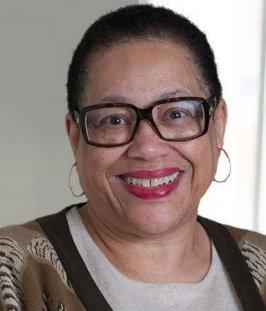 Charlene Crowell
Charlene Crowell
yet women still cannot get fair treatment when it comes to employment and earnings,” said Jamila K. Taylor, IWPR president and CEO. “And it’s worse for women of color, who face rampant racial discrimination in the workforce in addition to ongoing pay inequities.”
The report, the 2023 Weekly Wage Gap by Race, Ethnicity and Occupation, explores how these three factors are intertwined. In 2023 overall, according to IWPR, the wage gap for full-time workers by gender improved, but when race and ethnicity were factored into the analysis, a substantial wage gap grew.
The median income of
white men in 2023 increased more than all other groups, but IWPR found substantial wage gaps for Latinas and Black women. Weekly median wages for Black women dropped to 65.8% in 2023, down from the previous year’s 67.4%. Similarly, Latina wages fell from 2022’s 61.4% to 59.2% in 2023.
The highest paying occupations — management, business and finance positions — brought white men a median weekly income of $1,905, according to IWPR. But these same occupations paid Black men $1,488, and Black women earned even less at $1,287 per week.
By comparison, service occupations — paying less than other occupations, such as sales, construction and transportation — paid median full-time weekly wages of $917 to white men and $749 to Black men. Black women and Latinas earned even less in these occupations, with Black women taking home median weekly wages of $654 and Latinas earning $646.
Even compared to workers of the same race or ethnicity, women continued to earn less as full-time workers. For every dollar a Black man earned, Black women earned 91.6 cents. Latinas earned even less, earning 87.4 cents for every dollar earned by a Latino man.
“Tackling profound gender and racial wage gaps requires a variety of policies,” the IWPR report said. “These include addressing discrimination in all aspects of em-
ployment and tackling occupational segregation and its consequences, both by improving women’s access to and retention in well-paid jobs predominantly held by men and by improving earnings and job quality in undervalued jobs predominantly held by women.”
A report from the Urban Institute, How Policymakers Can Close the Wealth Gap for Black Women, asserted that any serious proposals to eliminate lingering and widespread barriers to wealth building must address the monthly costs that deny the ability to save money: lower women’s wages, child care costs, student loan payments, and unaffordable health care.
“Policies that help Black women afford rent, child care, education and food would allow them to pursue higher-paying employment opportunities and increase their ability to afford basic expenses, save, and invest in assets,” the Urban Institute report said.
To remedy these historic inequities, the Urban Institute called for policymakers to: Make college more affordable.
Ensure pay equity and support for women entrepreneurs.
Expand access to caregiving services and affordable health care.
Make mortgages more accessible.
A housing crisis is gripping tens of millions of families nationwide, cutting across political lines and sparking bipartisan action in state legislatures.
The root cause of the crisis is a chronic housing shortage, which has driven home prices up by approximately 60% after adjusting for inflation over the past decade. The staggering increase has left many families struggling to afford rent or homeownership, and, according to recent data, around a quarter of renters, equivalent to roughly 12 million households, are spending more than half of their income on housing costs, far exceeding the recommended one-third threshold for financial health. On Tuesday, May 7, Vice President Kamala Harris unveiled a significant funding boost to address the pressing issues of affordable housing and homelessness across the United States.
The White House said the announcement through the U.S. Department of Housing and Urban Development (HUD) marks a crucial step in Harris and President Joe Biden’s efforts to tackle the housing crisis inherited from previous administrations. Harris announced that $5.5 billion in grants would be distributed to 1,200 communities through more than 2,400 grants to states, cities, Washington, D.C., Puerto Rico, and local organizations nationwide.
“Homeownership is an essential part of the American Dream that represents so much more than a roof over our heads,” Harris stated. “That is why President Biden and I are expanding on our historic investments in housing by announcing $5.5 billion that will increase access to affordable housing, invest in economic growth, and address homelessness in communities throughout America.”
The funding, part of the White House Housing Supply Action Plan and the
Blueprint for a Renter’s Bill of Rights, aims to boost the housing supply, lower housing costs, expand rental assistance, enhance renter protections, and invest in more robust, more resilient communities.

“A coordinated whole-of- community approach is crucial to build strong and resilient communities, invest in decent housing, create healthy environments, expand economic opportunities accessible to low-income households, and support aspiring homebuyers and those experiencing homelessness,” Acting HUD Secretary Adrianne Todman emphasized in a statement.
The White House said the allocation of the $5.5 billion in grants would go through various HUD programs, including:
• $1.3 billion to 668 grantees to build affordable housing through the HOME Investment Partnerships Program (HOME).
• $214 million to every state to increase
affordable housing supply via the Housing Trust Fund (HTF).
• $3.3 billion to 1,254 grantees to build stronger communities through the Community Development Block Grants (CDBG).
• $455 million to 130 grantees to connect people with HIV/AIDS to housing and support through the Housing Opportunities for Persons With HIV/ AIDS (HOPWA) program.
• $290 million to 357 grantees to address homelessness through Emergency Solutions Grants (ESG).
• $30 million to 23 States and the District of Columbia to support recovery from substance use disorder via the Recovery Housing Program (RHP).
The announcement follows Harris’s recent stops on her nationwide Economic Opportunity Tour, where she has been highlighting the Biden-Harris administration’s efforts to support communities and improve access to housing while making it more affordable.
Administration officials pointed out that Harris has been a vocal advocate for homeownership and housing affordability. As attorney general of California, she helped pass the California Homeowner Bill of Rights, and as a U.S. senator, she introduced several bills aimed at increasing the supply of affordable housing and lowering renters’ costs.
The White House said the latest funding underscores the administration’s commitment to addressing the housing crisis and creating opportunities for all Americans to access safe and affordable housing.
“The funding made available today serves as building blocks to empower communities to take ownership of community development investments and put the needs of residents first,” Todman asserted.
Americans, it seems, can both value the idea of democracy and not support it in practice.
Since 2016, academics and journalists have expressed concerns that formerly secure democracies are becoming less democratic. Different measures of democracy, such as scores produced by the Economist Intelligence Unit, Freedom House and the Varieties of Democracy Institute, have suggested as much based on data over the past decade.
The surveys have sounded alarms about the future of democratic governance in places such as the U.S., which the International Institute for Democracy and Electoral Assistance listed as “backsliding” since 2019.
A number of countries that were once considered stable democracies — such as Hungary, India and Nicaragua — have seen their leaders and representatives undermine government institutions in common ways: by encouraging division and polarization, spreading misleading or biased messages, pursuing strategies to unfairly dominate in elections, promoting loyalists and marginalizing opponents, and attacking efforts to hold leaders accountable.
This pattern across democracies raises questions about whether what’s called dem-

ocratic backsliding is happening globally and which democracies are at risk of failing.
A report released recently by the Pew Research Center that describes the results of public opinion surveys on democracy and political rep-
resentation in 24 countries, including the U.S., has added to those concerns.
A substantial portion of respondents feel unrepresented by their governments, and 59% are dissatisfied with how their democracy is functioning. Three-quarters

of respondents indicate that elected officials do not care what people like them think, and 42% say that no political party in their country represents their views.
In the U.S., Pew reports that 66% are dissatisfied with how democracy is working, 83% feel overlooked by officials, and 49% feel overlooked by political parties. Such pessimistic trends are not new; a Gallup Poll in 2021 and a Pew survey from 2022 both reported that Americans’ trust in government is low.
One of the most unsettling statistics from the recent survey is that 32% of Americans think that “rule by a strong leader or the military would be a good way of governing their country.” This particular finding has been taken
as evidence for the idea that a growing number of Americans support replacing democracy with an authoritarian government.
Are Americans losing faith in democracy?
Not quite. Instead, respondents may be losing faith in current institutions’ ability to deliver what they expect out of democracy.
Most Americans support democracy as a concept.
Pew found that about 75% of respondents in the U.S. think that representative democracy is a good way of governing. A 2023 study also showed that Americans tend to see themselves as being more committed to democracy, while viewing members of the other party as being more likely to subvert democracy.
But people hold different ideas about what “democracy” is and what it should look like.
When asked to define democracy, those who emphasize electoral and liberal aspects — such as free elections and civil liberties — are more likely to indicate support for democracy. Research shows that commitment to these values is strongly related to democracy support.
In contrast, those who define democracy in terms of its ability to deliver economic security, such as taxing the rich and helping the unemployed, show weaker support for it. This suggests that when people in more democratic countries think that democracy is supposed to alleviate income disparities, they tend to be less satisfied with how democracy is working.

Respondents’ evaluations of whether their country is democratic — or whether democracy is functioning as intended — can therefore be influenced by whether they are economically well off and whether they feel their values are represented in society. Those who are benefiting more from the current political situation are more likely to support it.
Citizens’ desires for a strong leader may largely reflect economic dissatisfaction that overlaps with social and political shifts, such as changes in demographic diversity, family structures and religiousness. Competition with other groups over power and resources presents threats that make people more concerned about their future well-being than about how democracy is functioning.
Many may think that democracy is broken because it neither provides what they expect nor reflects the values they hold. Being laid off and experiencing rising food prices, or disapproving of prevailing positions on
socially divisive issues such as abortion, can lead a person to think that supporting mainstream politicians and the usual practice of electing officials is not enough to guarantee that their interests are represented.
Using dissatisfaction to undermine democracy
The Pew survey does not directly indicate that American citizens do not support democracy. But it does reveal an important vulnerability.
The results suggest that a substantial portion of citizens might support a leader working outside of democracy’s institutions — by breaking laws and avoiding accountability for it — because they have lost faith in those institutions’ ability to deliver their version of good governance.
Dissatisfaction with government performance and concerns about socioeconomic well-being can lead citizens to support someone who is willing to flout constitutional rules to restore what they consider to be a broken democracy.
When facing changes that
they deem a threat to their economic and social security, voters may gravitate toward someone who can “fix” the problem.
This has the potential to erode the very freedoms that respondents profess to care about. Populist leaders can use dissatisfaction and people’s feelings of being left behind or excluded to build support and justify antidemocratic stances.
Recognizing this is important for understanding how citizens can intrinsically value democracy — and undermine it at the same time. Although people may think they share similar definitions of it, democracy is a complex concept.
Concluding that citizens do not support democracy based on the survey does not address what those citizens think democracy is.

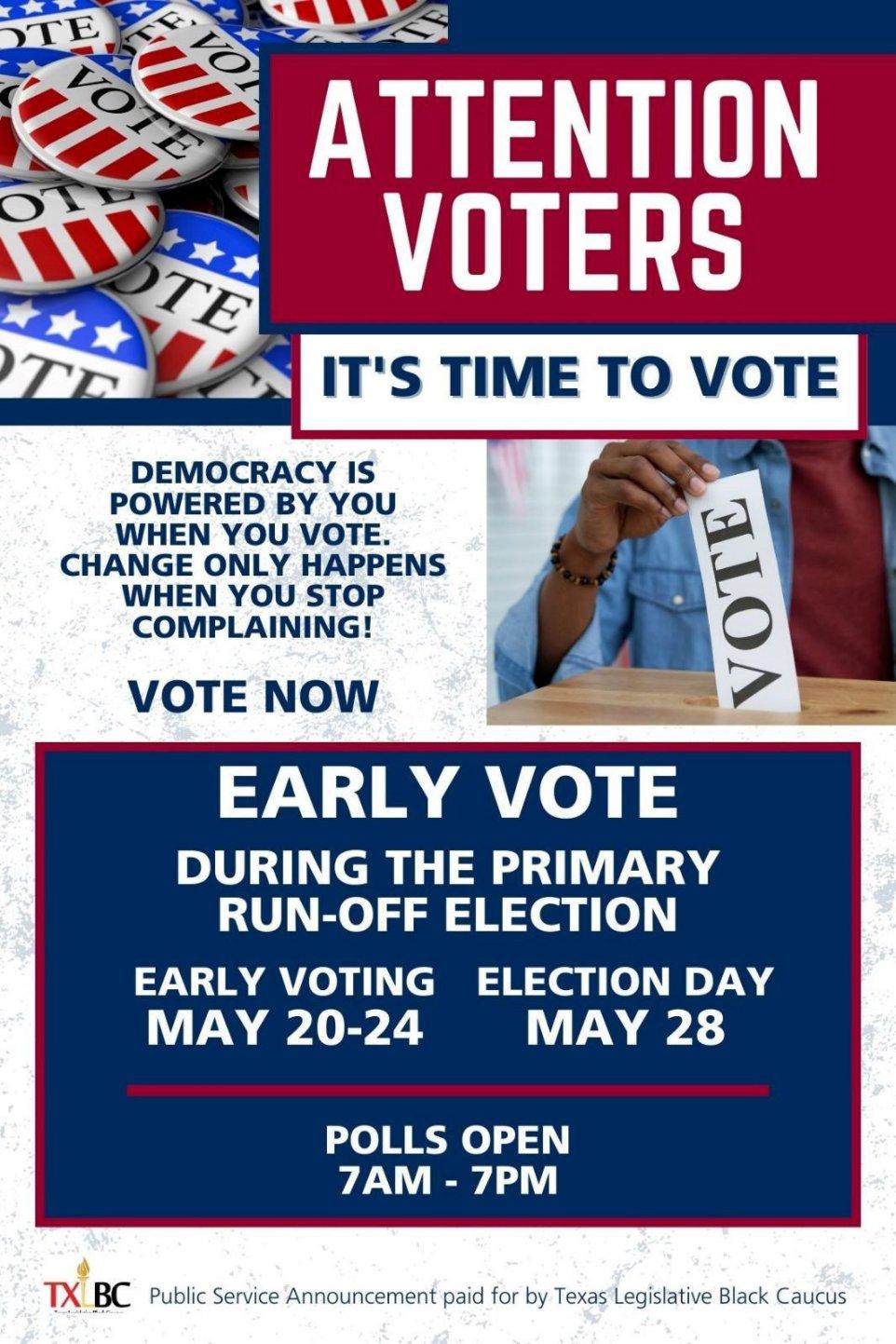

Roland Parrish hosted the Inaugural Parrish Best Southwest Relays, an exciting event that drew thousands of fans and numerous track teams to DeSoto High School Eagle Stadium, 700 Eagle Drive in DeSoto, on Saturday.
In a significant gesture of support, the Parrish Charitable Foundation distributed $50,000 in cash awards to AAU summer track teams, aiding their travel to the Junior Olympics in
July. This funding aims to empower and inspire young athletes by providing them with opportunities they might not otherwise have.
A highlight of the event was a special presentation honoring 1968 Olympian John Carlos. International, city, and state officials joined the celebration, including the Consul General of Mexico, who presented the official silver medallion of the 1968 Mexico City Olympics to Carlos. Additionally, DeSoto Mayor Rachel Proctor, State Sen. Royce West, State Rep. Carl O.Sherman, and DeSo-
to ISD Superintendent Dr. Usamah Rodgers offered acknowledgments and proclamations.
“This is a historic occasion for student athletes and track enthusiasts to witness,” said Parrish. “John Carlos is a living legend. His stand against racism during the Olympics inspires our children to dream big and fight for justice.”
Carlos, a proud alumnus of Texas A&M University-Commerce (formerly East Texas State University), is renowned for his iconic Black Power salute at the 1968 Olympics. This

courageous act, performed alongside Tommie Smith, remains one of the most powerful images in Olympic history and the Black Power movement.
The Best Southwest Relays, powered by the Parrish Charitable Foundation, received additional support from HSC Health and Aging Brain Study Health Disparities, State Farm Agent Michael Johnson and the University of Texas at Arlington.
John Carlos, a founding member of the Olympic Project for Human Rights, won the bronze medal in the 200 meters race at the 1968 Olympics. His Black Power salute on the podium with Tommie Smith sparked significant political controversy and underscored the athletes’ fight for human rights.
The Parrish Charitable Foundation is a non-profit organization dedicated to empowering children and youth through various initiatives and support.


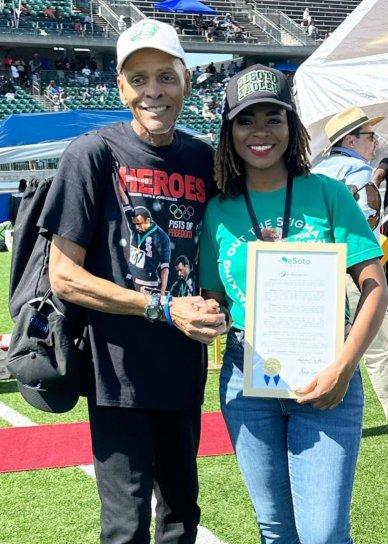







Balch Spring:
• Walmart: Lake June Rd.
Carrollton:
• Texaco: 2680 Old Denton Rd.
• 7-Eleven: 3700 Old Denton Rd. & Trinity Mill Rd.
• Texaco: Old Denton Rd./ Rosemeade Pkwy.
• Josey Ranch Library: 1700 Keller Springs
Coppell:
• North Lake College: 101 S. Royal Lane
Dallas:
• Tom Thumb Supermarket: S. Hampton Rd.
• Valero: West Jefferson St.
• Fiesta Supermarket: West Jefferson St.
• Valero: Marsalis and I-35 Stemmons Fwy.
• Oak Cliff Municipal: East Jefferson St.
• 7-Eleven: Marsalis and 8th St.
• Shell Station: 8th Street & I-35
• Exxon / Sonic: Riverfront Blvd.
• The Black Academy of Arts & Letter: S. Griffin St.
• K&T Smokes & More: Corinth & Morrell
• Shamrock Gas: Corinth & Morrell
• Exxon on Lancaster Rd & Saner
• Convenience Store Marsalis & Saner
• Smokey John’s BBQ: Mockingbird Lane
• Blue Bros. Restaurant: Mockingbird Lane
• IHOP Restaurant: Mockingbird Lane
• 7-Eleven: Gaston Ave. & Haskell St.
• The Volunteer Center: Live Oak & Liberty St.
• Walmart Stores: Retail Road
• Hamilton Baptist Church:
Schroeder Lane
• Tom Thumb: E. Lovers Lane
• 7-Eleven: Skillman Blvd. & Loop 12
• Chevron / McDonalds: N. Central Expressway
• Walmart Stores: N. Central Expressway
• 7-Eleven: N. Central Expressway
• Walmart: Northwest Hwy. @ Skillman
• Wash & Dry: Skillman @ Audelia
Downtown Dallas:
• Hall’s Honey Fried Chicken: Med Dist Dr & I-35
• Marriott: North Stemmons Freeway & I-35
• Happy Mart & McDonald’s: N. Stemmons Fwy.
• DoubleTree Hilton on Market Center Blvd.
• Best Western: Market Center Blvd.
• Courtyard by Marriott: Market Center Blvd.
• Comfort Inn & Suites: N. Stemmons Fwy.
• Home Suites Hilton: N. Stemmons Fwy.
• Embassy Suites: N. Stemmons Fwy.
• Extended Stay: N. Stemmons Fwy.
• Holiday Inn: N. Stemmons Fwy.
• 7-Eleven: N. Stemmons Fwy.
South Dallas/Oak Cliff:
• DJ’s Blackjack Pizza: MLK Blvd.
• 2 Podners Restaurant: R. B. Cullum Blvd.
• Elaine’s Jamaican Restaurant: MLK Blvd.
• Aunt Irene’s Kitchen: Malcolm X Blvd.
• Martin Luther King Center: MLK Blvd.
• SouthSide on Lamar: S. Lamar St.
• Fiesta Supermarket: R. B.
Cullum & MLK Blvd.
• Delta Sigma Theta Sorority Inc.: MLK Blvd.
• Muhammad Mosque on MLK Blvd.
• Kappa Alpha Psi Fraternity Inc. on MLK Blvd.
• Omega Psi Phi Fraternity Inc. MLK Blvd.
• 7-Eleven: Ledbetter & Bonnie View Rd.
• Valero Gas: Ledbetter & Bonnie View Rd.
• CostPlus/CashSaver: Ledbetter & Lancaster Rd.
• Hall’s Honey Fried Chicken: S. Lancaster Rd.
• Lounas Convenience Store: S. Lancaster Rd.
• Convenience Store: Lea Crest Dr. & S. Lancaster Rd.
• Dunbar US Post office: Kiest Blvd.
• Black and Clark Funeral Home: S. Illinois Ave.
• Texaco Station: S. Illinois Ave.
• EatZone Restaurant: S. Illinois Ave.
• Pan-African Connection: Ann Arbor Rd. Plaza
• Convenience Store: Ann Arbor Rd. Plaza
• 99-cents Convenience: Ann Arbor Rd. Plaza
• Papa Mart: Overton Rd. & Ramona
• Bank of America: S. Lancaster & Overton Rd.
• Fiesta Supermarket: S. Lancaster & Kiest Blvd.
• Family Dollar: S. Lancaster Rd. & Illinois Ave.
• TacoMart: S. Lancaster Rd & Overton Rd.
• Wing Daddy Restaurant: S. Lancaster Rd. & Overton Rd.
• 7-Eleven: S. Lancaster Rd. and Overton Rd.
• Louisiana Catfish: Stuart Simpson & Bonnie View Rd.
• Save U More Supermarket: Stuart Simpson Rd.
• Valero Gas: Stuart Simpson Rd.
• Exxon Convenience: Stuart Simpson Rd.
• Sweet Georgia Brown Restaurant: Ledbetter & Bonnie View Rd.
• Wells Fargo Bank: Hampton Rd.
• Glen’s Kitchen: Camp Wisdom Rd.
• South Dallas Cafe: Camp Wisdom Rd.
• Popeyes Exxon: S. Lancaster Rd.
• Cash Saver/Cost Plus: W. Camp Wisdom Rd.
West Dallas:
• Jerry’s Mart: Westmoreland Rd.
• Circle K: Westmoreland & S. Hampton Rd.
• 7-Eleven: Westmoreland & S. Hampton Rd.
• CostPlus Cash Saver: S.Hampton Rd.
• 7-Eleven: S. Hampton Rd.
DeSoto/Lancaster:
• Walmart on Beltline Rd & I-35
• 7-Eleven: Beltline Rd.
• DeSoto Grocery: Beltline Rd.
• Tom Thumb: Pleasant Run Rd.
• DeSoto Convenience Store: Pleasant Run Rd.
• B&B Tax: Pleasant Run Rd.
Duncanville:
• WinCo Food Stores: I-67
• Hilton Express: I-67
• Louisiana Fried Chicken: W. Wheatland Rd.
• Louisiana Catfish: East Danieldale Road & I-67
• Shell Gas: I-67 and E. Danieldale Rd.
• Pantera Convenience: I-67 & E. Danieldale Rd.
www.myimessenger.com

Remembering George Floyd, October 14, 1973 - May 25, 2020
TwoGether Land, the latest addition to the ONE Musicfest (OMF) family in partnership with Live Nation Urban, is set to make its mark in Dallas at the historic Fair Park. The renowned ONE Musicfest has chosen the vibrant city of Dallas as the perfect canvas for its expansion, introducing TwoGether Land as a sister festival. Presented by ONE Musicfest, TwoGether Land takes place during Memorial Day weekend




ing


Starr. Activities include
vendors, a variety of arts and crafts, live performances and much more. 5-10pm
16
SAVOR THE DATE
Smith Weekday mornings on FaceBook at 8:45 am Bringing you hype you can believe!





CITY MEN COOK - Father’s Day, 3:00-6:00 pm at Central Business District in Dallas. For sponsorship/participation, access: www. citymencook.com -- email whatscooking@ citymencook.biz or call 214-233-6199.
19








The World According to Drew on BlogTalkRadio.com 8 am.-10 am. CST. Sundays Tune in for thought-provoking, enlightening, informative, and entertaining news and commentary. Join Andrew Whigham on the call 646-200-0459


Check out HAM ILTON at the Winspear Opera House, BroadwayDallas.org. MAY 23
The DSO will present their annual Memorial Day celebration featuring the US Army Band (“Pershing’s Own”), the US Army Chorus and Country star Craig Morgan. The program will include patriotic favorites performed by the band from American composers including John Philip Sousa, Aaron Copland, Irving Berlin, and more. 8:15 pm and fireworks will begin at 9:15 pm at Flag Pole Hill, 8015 Doran Circle, Dallas, TX 75238
*Rain site: Morton H. Meyerson Symphony Center
25


The Blank Collective Art Exhibition! 5:30 pm to 8:30 pm for a night filled with creativity, music, delicious food, and complimentary drinks. The event will be hosted at The DEC Network, Suite #200, 3560 W Camp Wisdom Rd, Dallas, TX. Our exhibition will showcase a diverse collection of artworks from local artists
26
Happy 46th to the Elusive Ladies, Spring 1978 at Florida A&M University - Beta Alpha Chapter#BADST


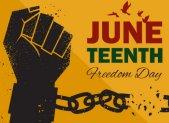

Tyrone Jackson is celebrating his birthday with New Jack City Christopher Williams performing Live with Sean G. GET YOUR ALL WHITE AND SHOW UP & SHOW OUT ������ #BlockPartySunday https:// ChristoperWilliams.eventbrite. com


Alpha Kappa Alpha Sorority, Inc, Alpha Beta Phi Omega Chapter The Taste of Black Mansfield FoodTruck Edition SECURE YOUR FREE SPOT TODAY @ https://docs.google.com/.../ 1FAIpQLScvGeDRnY2Qr.../viewform 2

America’s First Islamic Tradition hosts Surviving and Saving America By Imam Earl Abdulmalik Mohammad. Doors open at 12:00 pm J. Erik Jonsson Central Library 1515 Young St. Dallas, TX 75287. This event is not sponsored by the Dallas Public Library. Free to Attend. OPEN TO THE PUBLIC. For more Info: www.muslimamericanministry.com.
8

Texas Rangers v San Francisco Giants: HBCU Diamond Day @ 3:05pm. Show up and show off your HBCU pride! The Texas Rangers 2nd annual HBCU Diamond Day recognizing current students and alumni from Historically Black Colleges & Universities. Each ticket purchase will include an exclusive Texas Rangers HBCU ballcap.
19 HAPPY JUNETEENTH
by


25

12
HBCU Swingman Classic







